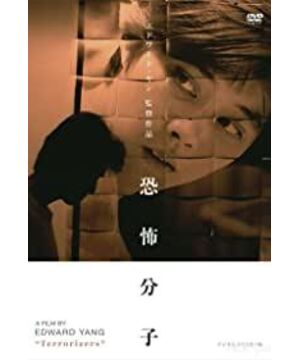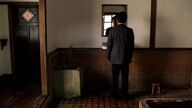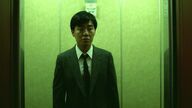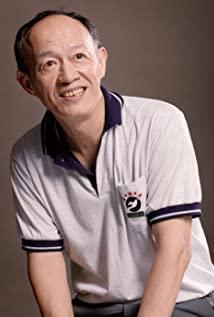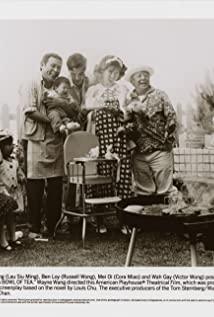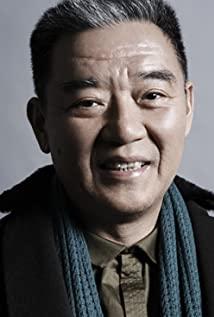In the Chinese film industry, there are only a handful of directors who can be called "master-level", and Yang Dechang is one of them.
He is known as the standard bearer of the new wave of Taiwanese cinema. His films were always able to act as a booster in those days, awakening the world suffering from social diseases.
It is no wonder that Yang Dechang is called "the scalpel of Taiwanese society" in the industry. His films reveal the current situation and past of Taiwan.
Among Taiwanese directors, Yang Dechang and Hou Hsiao-hsien are my two favorites.
The difference is that Hou Hsiao-hsien is like an idyllic poet. His works are always detached from the distant and nostalgic rural atmosphere, and he tells the stories, such as "Love in the Wind and Dust", "Childhood Memories", and in recent years "Assassin Nie Yinniang". And Yang Dechang is more like a preacher running between cities, he focuses on the criticism and impetuousness of the city, and pinpoints the shortcomings of the times.
Yang Dechang confessed his interest in urban themes. He said: "In the process of Taiwan's gradual modernization, people often feel that modern society is very alienated. I recently realized that this feeling is compared with agricultural society. In the past The way of life is that the sun rises and the sun sets, and the relationship between people is relatively simple and friendly. Why do I make some movies about the city, because it is already a common way of life in a civilized society.”
His impetus and exposure to modern urban problems are all in the movie.
I have been watching Yang Dechang's films for the past week. I originally thought that I could write a film review after watching one, but every time I typed out the first few words, but I couldn't start writing anymore. Yang Dechang's films have always been known for their complex, multi-linear narrative style and subtle camera language. He always tries to lash out the entire Taiwanese society and interpersonal relationships in a single film. He deeply discusses all aspects of love, marriage, family affection, human nature, society, etc. in his works.
It is because the emotional themes expressed in each film are too complicated, so every time I start to write, I will be disturbed by a certain picture and lines in the film from time to time.
Just like when I just finished watching his "The Terrorist" , I originally wanted to watch this movie through Zhou Yufen's point of view as a professional woman turned into a housewife who writes novels. The film shows contentment with the status quo and disturbance. Who can say that Zhou Yufen has become a mediocre housewife and has nothing to do with Li Lizhong? In the final analysis, is it Li Lizhong's indifference to his wife, or is it related to Zhou Yufen's spiritual fragility and depression?
In fact, it's all related, but I can't empathize with the feeling of how the passion from the beginning of the marriage has become dull and indifferent. Yang Dechang gave us a mirror, and we saw ourselves in the mirror, the hysterical pain, and then woke up .
If you don't watch the movie "Terrorist" carefully, you will miss a lot of things. Even half an hour has passed since the beginning of the film, you will not even know the names of the characters in the film, let alone what relationships are between the characters.
"The Age of Independence" is especially like a didactic movie, but it doesn't look boring, which makes people cry secretly!
Through this film, Yang Dechang is preaching to the world. It's just that his preaching makes people willing to accept this psychotherapy, we seem to see their own shadow in every character in the movie.
In the film, Yang Dechang did not deliberately create conflicts and climaxes in the film to enhance the viewing quality of the film, and broke away from the linear narrative style. In the mediocre eating and drinking of men and women, he constantly exposed the human weakness of the money-desiring society.
"Mahjong" made me see a different Yang Dechang style.
Through Red Fish, Hong Kong, Toothpaste and Lun Lun, four young people who lost their humanity in Sex and the City, he used their experiences and stories to spur the impetuous and lost city of Taipei.
Different from his traditional preaching mode, Yang Dechang added youthful elements in the film "Mahjong", and saw more obvious conflicts between characters and the beginnings and turns of the plot, which is rare in his works. . Therefore, "Mahjong" will look more enjoyable.
I read a book earlier, saying that Yang Dechang feels like a very gentle elder in his life, he is tall and smiling. But as soon as it enters the shooting period, it will be different, and it will completely become a fierce artist who criticizes everything.
And this "Mahjong" is particularly young, fierce and vulgar.
In the film, there are many swear words, red fish and bald heads are inseparable from swear words, and things like "dry!", "chicken break", "fuck" and "fuck" can be seen everywhere. And this kind of phenomenon was actually the most realistic portrayal in Taipei back then. He restored the face of society in such a straightforward way.
Mahjong was awarded the Special Jury Prize at the Berlin Film Festival that year.
Editor Chen Bowen recalled that the director personally spent 1 million to invite the crew to Berlin. He complained that the director should not spend so much money, and Yang Dechang said something: "You don't know, in Taiwan, movies have no dignity, I It is respected to ask them to go outside and see foreign filmmakers, it is worth your money to make a movie, it is valuable. It is not like Taiwan is now kicked aside like a beggar for making movies.”
The film "Guling Street Teenage Murder" was watched in pieces on the subway last year. The film is very long, nearly 4 hours. After watching it, it feels like a long life. This film is also the one with the highest historical status in Yang Dechang's works.
As for "One One", there is no need to repeat too much.
It's the same sentence that Yangyang said: "Mother-in-law, I miss you so much. Especially when I see that little cousin who doesn't have a name, I will think of you often telling me that you are old. I really want to say to him: I also old."
Every time I think of the scene when he said these words, my heart is always sour and aching. I think that's the greatest charm of the movie.
"A movie can cover the whole world." I think this is the best summary of Yang Dechang's work.
Wu Nianzhen, a veteran actor who has collaborated with Yang Dechang the most times, said: "This bastard, the filming speed is too slow, otherwise there will be only those few movies!"
I think only Wu Nianzhen can call him a bastard without any scruples. Maybe Yang Dechang likes movies more than people. Hearing this sentence, he really wanted to cry. He was missing a dear friend who had passed away. He complained lightly and calmly, but his heart was full of regret.
The death of Yang Dechang is the end of a film era in Taiwan, and it has been ten years in the blink of an eye.
On his tombstone is written this sentence: "Dream of love and hope shall never die" (The dream of love and hope shall never die).
The same is true of his films, always moving forward in despair, constantly showing me hope.
View more about The Terrorizers reviews


